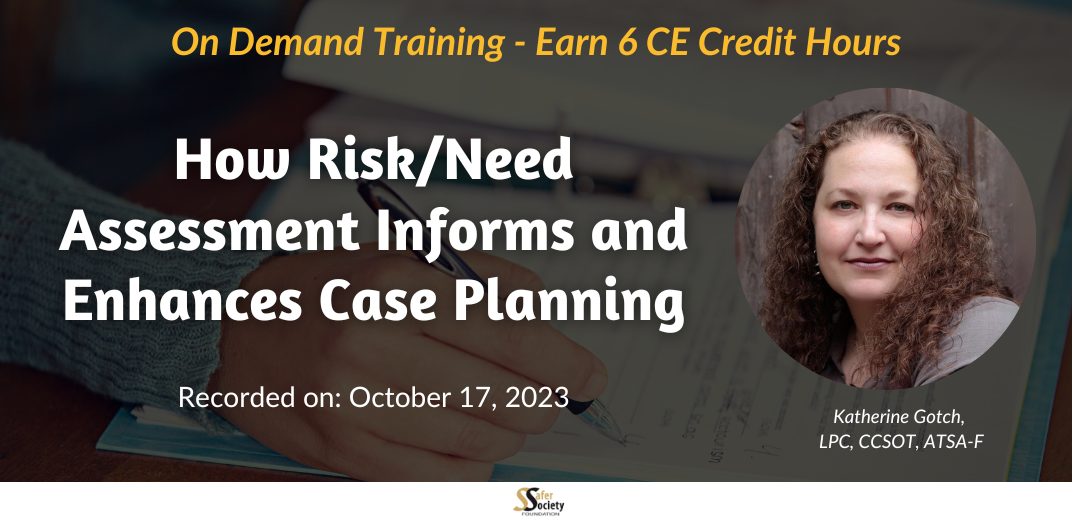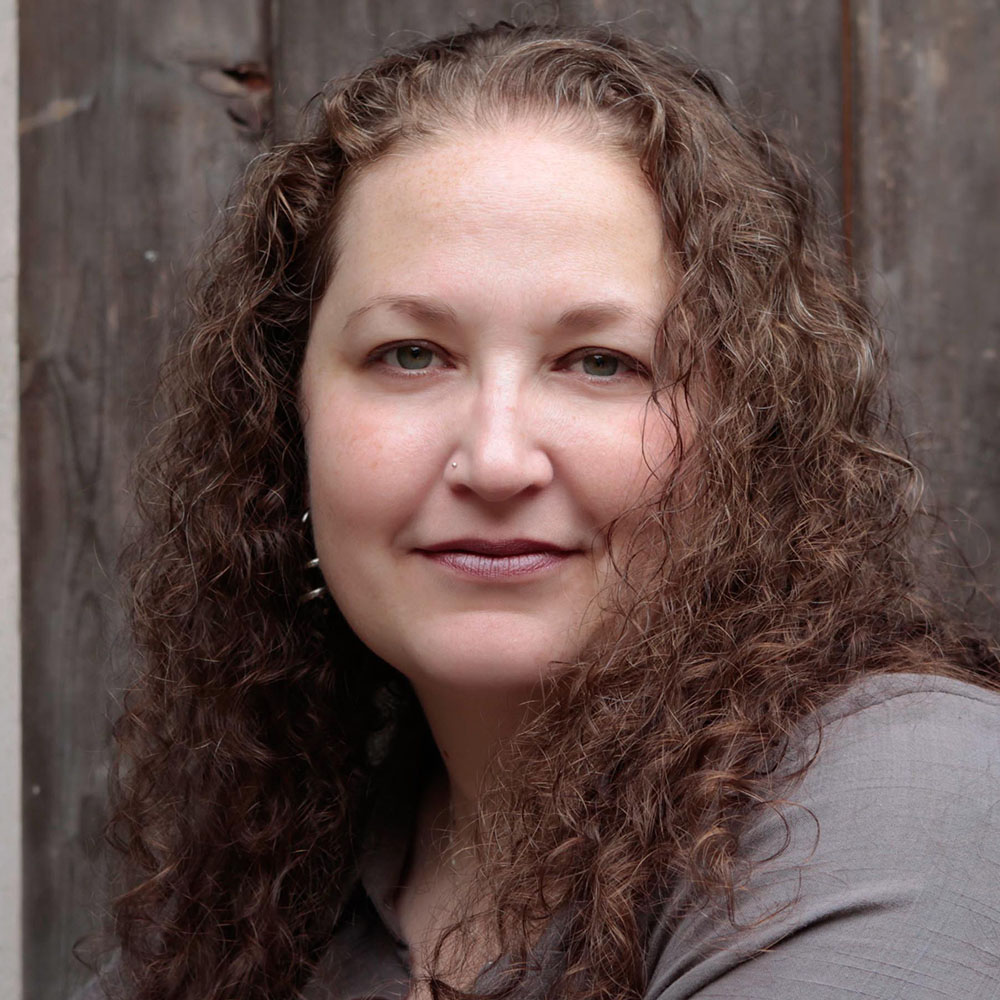
How Risk/Need Assessment Informs and Enhances Case Planning
Already purchased an On Demand training?
Click here to access your Safer Society On-Demand Training Center account.
Over the past 30 years, research has led to the identification of empirically derived risk factors associated with general criminality, violence, and sexual offense recidivism, and this, in turn, has resulted in the development of specialized risk assessment tools. Risk assessment plays an integral role within forensic mental health and correctional practice as it is one of the most important and frequent tasks required of evaluators, clinicians, and correctional professionals.
This training provides a foundational understanding of the assessment of risks and treatment needs in preventing general, violent, and sexual re-offense by adults. Presenter Katie Gotch reviews background information on understanding risk and risk factors, as well as those protective factors that mitigate risk. She explains how some risk factors (such as self-regulation) can be used in treatment and are therefore referred to as criminogenic needs. These can, in turn, be used to understand the role that risk and protective factors have played in each client’s life.
Topics discussion include:
- History & development of contemporary risk assessment methods
- Types of risk assessment
- Identification of risk & protective factors
- Examples of empirically validated tools
- Core components of risk assessment
- Conducting risk assessment
- Applying risk assessment to practice
- Special populations (e.g., females, IDD, transgender clients)
Developing accurate, research-informed risk formulations contributes to effective case planning, treatment, and outcomes. The training explores information that is fundamental to assessment and planning, including the roles of psychopathy, childhood adversity/trauma, and considerations with special populations.
This training is part two of a five-part course.
To learn more about the full course on assessing and treating adults who sexually abuse, please click here.
1) Describe the different approaches to risk assessment and varying types of risk assessment tools.
2) Explain the bio-psycho-social model of offending and the importance of assessing psychopathy within the risk assessment process.
3) Describe the core components of risk assessment.
4) Identify how adverse childhood experiences, trauma, and protective factors affect risk assessment.
5) Apply risk assessment protocols appropriately to special populations (for example, females and people with intellectual disabilities).
6) Integrate risk assessment within case/treatment/risk management plans.
Audience
This training is designed for a diverse audience of professionals working in forensic mental health, correctional practice, and related fields. This includes clinicians, psychologists, social workers, counselors, probation and parole officers, and more. The training is suitable for both newcomers to the field and experienced professionals looking to enhance their skills in risk assessment and management
Content Level
Disclosure
Continuing Education Approval
American Psychological Association (APA)
Safer Society Foundation, Inc. is approved by the American Psychological Association (APA) to sponsor continuing education for psychologists. Safer Society Foundation, Inc. maintains responsibility for this program and its content.
Who's Presenting

Katie Gotch, LPC, CCSOT, ATSA-F
Katie Gotch is a Safer Society Collaborator. She has worked in the field of sexual abuse prevention for well over twenty years as a clinician, evaluator, trainer, educator, and in the development of evidence-informed public policy. Katie currently maintains a private practice, Integrated Clinical & Correctional Services, which provides specialized clinical and consultation services related to individuals with sexual behavior problems and other forms of abusive/violent behavior. She frequently provides training to correctional agencies, treatment providers, policy makers, and other community partners on sexual abuse specific assessment, management and treatment; static and dynamic risk; public policy; public/media engagement; and related topics. She is a certified Static-99R/STABLE & ACUTE-2007 trainer and a local ODARA trainer. Katie has a long history of public policy and board involvement; She has served as the Public Policy Executive Board Member for ATSA, as a Board Member for NPEIV, and as the Policy Advisor for OATSA.
